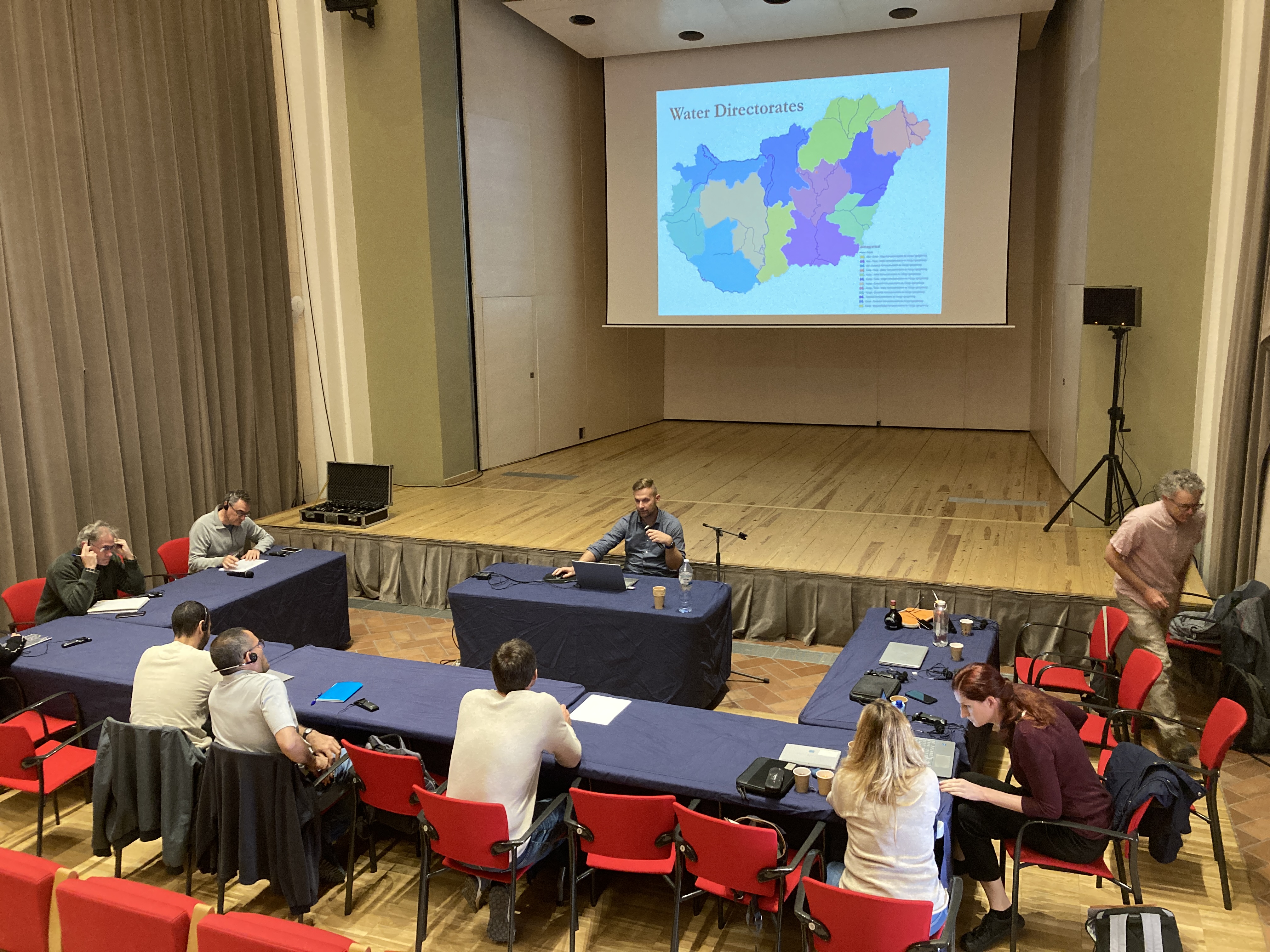
On 8–9 October 2025, the city of Figueres (Catalonia, Spain) hosted a seminar for the InnWater project, focusing on water governance in the Muga river basin. The event brought together experts and practitioners from Spain, Hungary, and Czechia to exchange experiences on agricultural water management and drought adaptation.
Workshop: Shared Lessons from the Tisza and Muga Basins
The workshop, held at the Auditori Convent dels Caputxins, was opened by Xavier Turró Ventura, Head of the Environment and Sustainability Department at Figueres City Council. The session introduced the InnWater project’s activities in the Muga basin and set the stage for an exchange of European experiences in coping with increasing water scarcity.
Speakers from Hungary’s Regional Centre for Energy Policy Research (REKK) and the Middle Tisza District Water Directorate (KÖTIVIZIG) presented lessons from the Tisza River basin, where water management faces growing challenges due to climate change, changing agricultural practices, and competing water uses. Subsequently, a representative of the Institute for Economic and Environmental Policy (IEEP) shared conclusions on farmer attitudes for water rentention in Czechia.
- András Kis (REKK) outlined the historical evolution of water management in the Middle Tisza region and the mounting difficulties farmers face as landscapes dry out.
- Gábor Ungvári (REKK) explored the water allocation challenges at Lake Tisza, balancing drinking water supply, irrigation, hydropower, and environmental needs.
- Dávid Béla Vizi (KÖTIVIZIG) shared experiences from recent droughts and cooperation mechanisms between authorities and farmers.
- Lenka Zaňková (IEEP Czechia) presented Czech farmers’ attitudes toward off-season water retention as a drought mitigation measure.
Discussions highlighted that holding water on agricultural land can strengthen soil moisture reserves but also entails economic and practical trade-offs, including higher cultivation costs and adjustments to land use. Participants compared these approaches to the situation in Catalonia, where the Muga basin’s limited water availability, steep terrain, and high evapotranspiration make such retention practices less viable.
The event also explored how economic instruments, such as local water markets, could contribute to fairer and more efficient allocation of scarce resources. In the final discussion, participants reflected on similarities and differences between the Tisza and Muga basins and how knowledge sharing can support adaptation to more frequent droughts.
Study Tour: From Source to Use in the Muga Basin
The following day, participants joined a study tour to visit key sites of the Muga basin water system, gaining first-hand insight into how water is captured, treated, used, and returned to the environment.
The tour began at the reservoir Pantá de Boatella that supplies Figueres and its surrounding areas, which provides drinking water, supports agricultural irrigation, and maintains ecological flow downstream.
The group then visited a section of the La Muga River where treated wastewater from Figueres is released back into the river, contributing to environmental flow and serving as a potential water source and allocation point for irrigation and other uses.
The final stop was at agricultural lands equipped with irrigation infrastructure, including canals, locks and linear irrigation systems, where participants discussed how farmers are adapting their practices under increasingly variable and uncertain water availability.
Exchanging Experiences for Resilient Water Management
The Figueres workshop and study visit showcased the value of cross-regional exchange in addressing shared water challenges. Despite their differing climates and topographies, the Muga and Tisza basins face comparable issues of water scarcity, competing sectoral demands, and the need for cooperation between farmers and authorities.
By connecting practitioners from across Europe, the InnWater project continues to promote innovative, locally grounded approaches to sustainable and equitable water governance.